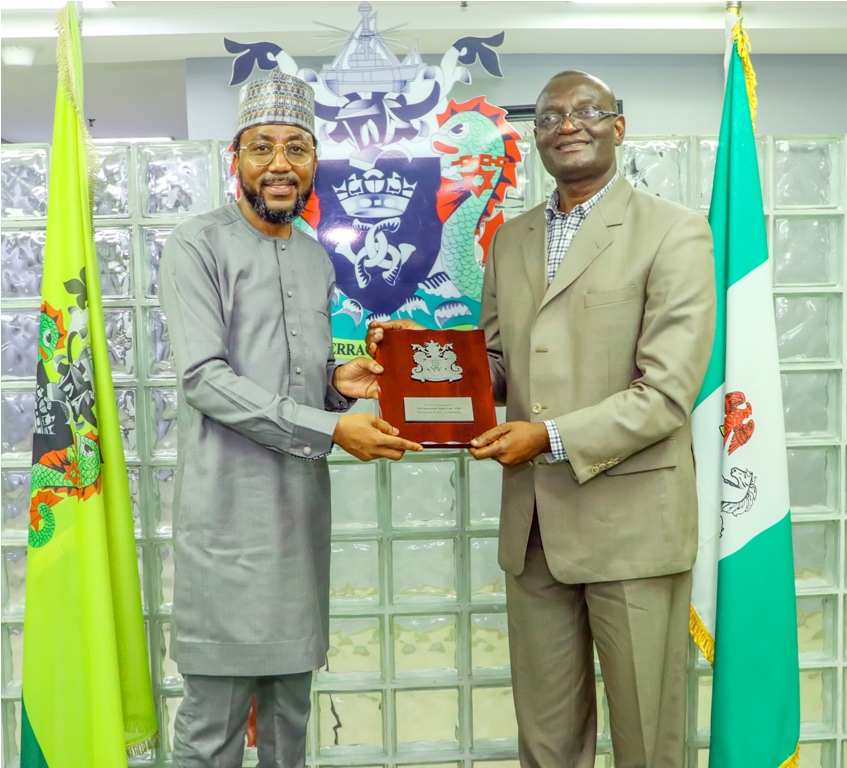
Recently, the Executive Secretary of the Nigerian Shippers’ Council (NSC); Mr Emmanuel Jime confirmed what we all knew about Chief Executive Officers of maritime agencies in Nigeria. He spoke openly and boldly and confirmed the presence of rivalry among the government agencies.
The occasion was a send forth organised to appreciate the immediate past Minister of Transportation; Muazu Jaji Sambo and the Minister of State; Prince Ademola Adegoroye.
Not minding that the event was put together by journalists, the Shippers’ Council boss spilled the beans and even dwelt on how the CEOs fought to ensure that the Council did not get the endorsement of the Minister to implement Cargo Tracking Note.
Facing the crowd of eminent private and public sector players including the Chief Executives, Jime said: “I don’t want to stand here and lie to us; there is inter-agency rivalry among us. I know quite a lot of our friends that didn’t actually really want the idea of NSC implementing the CTN”.
He then went ahead to explain how the minister brushed aside all the opposition from sister agencies and got the Federal Executive Council (FEC) approval for Nigerian Shippers Council to implement the Cargo Tracking Note.
The agreement with some of the terminal operators had expired, and the immediate past Minister of Transportation was expected to bring the new agreement up for approval before the last administration left.
The Minister failed to present the documents for the renewal owing largely to the rivalry between the Nigeria Ports Authority and the Nigerian Shippers Council.
At a point, the Minister frowned at both NPA and NSC over the failure of both agencies to work together on the documents that were needed for the FEC approval.
Sadly, even though the Minister was eager to get the concession renewed, the two agencies failed to work together in working on the port concession agreement documents.
Apart from the CTN which the CEO of Shippers’ Council has opened up on, there are many other instances that could buttress the fact that the CEOs worked against one another’s interests. One of such is the renewal of concession agreement of the terminal operators.
Perhaps the biggest evidence of inter-agency rivalry came to play during the move to pass the controversial National Transport Commission (NTC) Bill.
The National Transport Commission bill was first sent to the National Assembly in 2006. The NTC was to serve as regulator in the transport industry including maritime, rail, aviation and land transport. It was also expected to promote competitive market, conduct and ensure that the misuse of monopoly or non-transitory market power is prevented in the provision of transport services; promote private sector participation in the provision of transport services; ensure that operators and users have equitable access to the use of transport facilities, services, channels and routes.
The Senate again passed the Bill in 2018, but the then-President Muhammadu Buhari refused to assent to the bill.
The Bill has been unlucky since that first attempt. The best opportunity was the one offered in 2018. But this efforts were allegedly thwarted by the then Managing Director of the Nigerian Ports Authority; Hadiza Bala Usman. Her reasons were hinged on inter-agency overlapping responsibilities.
Since the 2018 attempt, the Bill has been going back and forth between the National Assembly and the Presidency.
We are however of the opinion that the passage of the National Transport Commission Bill by the National Assembly and its assent by the President is the solution to the embarrassing incidences of inter-agency rivalry.
The various agencies under the country’s Transportation Ministry have a lot of uncoordinated and overlapping activities.
It is a fact that, between the Nigerian Maritime Administration and Safety Agency and the Nigerian Ports Authority, there are conflicts of interest over wreck removal; between NIMASA and the National Inland Waterways Authority (NIWA) there is conflict over who controls the inland waterways. The same applies down the line among the agencies.
These overlapping functions have often led to protectionism on the part of the CEOs. The result is that they outsmart each other to protect their respective agencies.
It is noteworthy that all stakeholders are united in the call for the birthing of the NTC. Apart from streamlining activities of the various agencies in the transport and aviation sectors, the Commission will also attract needed investment to the sector and mobilise the transport policy to advance economic diversification.
We agree with those who have opined that the non-assent to the Bill by former President Muhammadu Buhari stagnated the sector.
It is our hope that the new administration of President Bola Tinubu will reason with the National Assembly and assent to it, when it is eventually represented.
We appeal to the National Assembly to see the NTC Bill as a national assignment for the all-important transportation sector. The Bill will have to be subjected to legislative scrutiny all over, but its details have not changed. All that were observed by the ex-President have been attended to. All that is required is for it to be represented for assent.
In the same manner, we urge industry stakeholders not to be deterred to work with the Nigerian Shippers Council to repackage the all-important bill
Follow us on Facebook/ twitter















